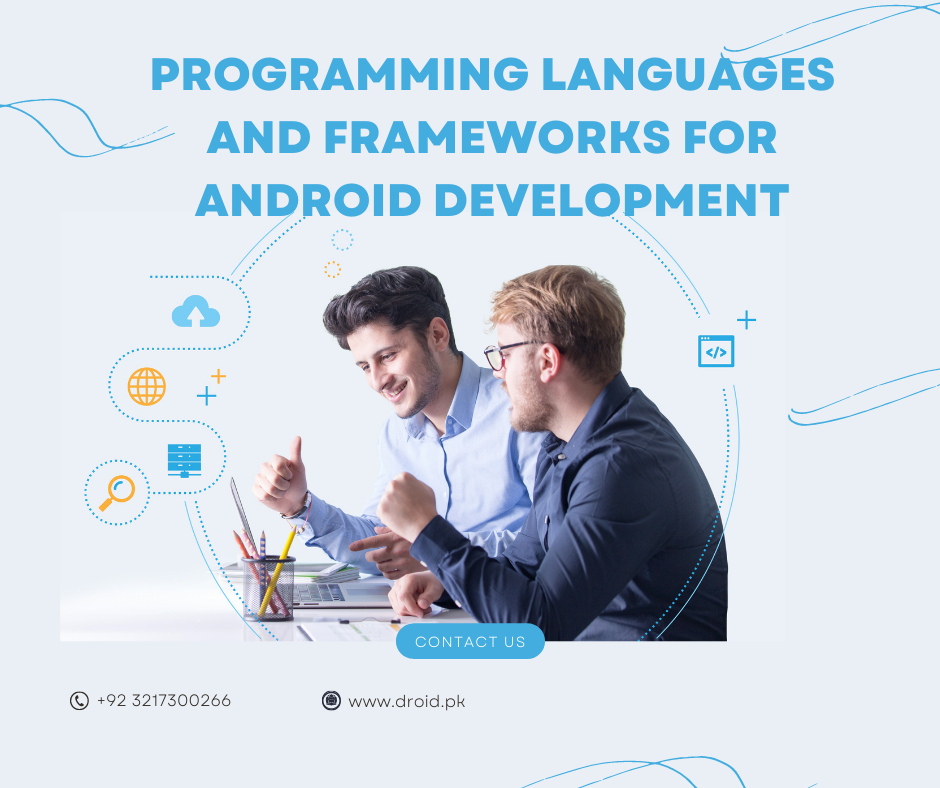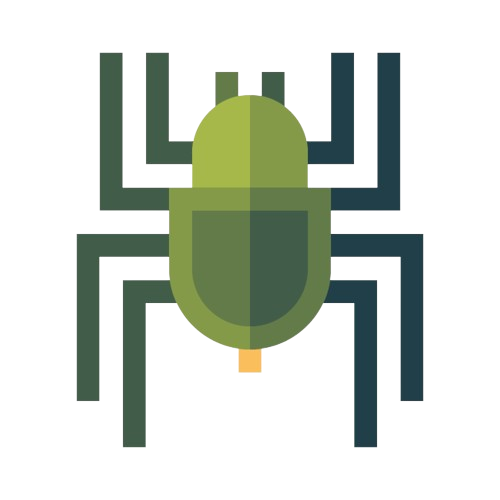
Programming Languages and Frameworks for Android Development
Share
When it comes to Android app development, choosing the right programming language and framework is crucial. These tools determine the efficiency, performance, and ease of development for your Android applications. In this article, we will explore various programming languages and frameworks that empower developers to create robust and feature-rich Android apps.
Programming Languages for Android Development
Java
Java has been the primary programming language for Android development for many years. It provides a rich set of libraries, tools, and a vast community support. With Java, developers can build scalable and reliable Android apps that can run on a wide range of devices.
Kotlin
Kotlin is a modern programming language that has gained significant popularity among Android developers. It is fully interoperable with Java and offers several advantages such as null safety, concise syntax, functional programming capabilities, and improved code readability. Kotlin enhances developer productivity and provides a more enjoyable programming experience.
C++
C++ is a powerful and efficient programming language suitable for performance-critical Android apps. It allows developers to write native code and access low-level device features. C++ is often used in gaming applications and resource-intensive tasks where maximum control and performance are required.
JavaScript with Frameworks like React Native
JavaScript, combined with frameworks like React Native, allows developers to build cross-platform apps using a single codebase. React Native provides a native-like experience and leverages the power of JavaScript to create dynamic and interactive Android applications.
Frameworks for Android Development
Android SDK (Software Development Kit)
The Android SDK provides developers with the necessary tools, libraries, and APIs to build Android applications. It includes resources for UI design, data storage, networking, and more. The Android SDK is the foundation for Android app development and offers extensive support for various features and functionalities.
Android Studio
Android Studio is the official Integrated Development Environment (IDE) for Android app development. It provides a comprehensive set of tools and features for writing, debugging, and testing Android applications. Android Studio offers a user-friendly interface, real-time code analysis, and seamless integration with the Android SDK.
Flutter
Flutter is an open-source UI framework developed by Google. It allows developers to build high-performance, cross-platform apps using a single codebase. Flutter uses the Dart programming language and provides a rich set of customizable widgets, hot reload for rapid development, and native-like performance.
React Native
React Native is a popular JavaScript framework for building native mobile apps. It allows developers to create Android applications using JavaScript and reusable components. React Native provides a bridge between JavaScript and native APIs, enabling access to device features and delivering a native-like user experience.
FAQs
-
Q: Which programming language is best for Android app development: Java or Kotlin?
- A: Both Java and Kotlin are widely used for Android app development. Java is a mature language with extensive community support, while Kotlin offers modern features and enhanced productivity. The choice depends on your preference and project requirements.
-
Q: Can I use C++ for Android app development?
- A: Yes, C++ can be used for Android app development, particularly for performance-critical tasks or when accessing low-level device features. It allows developers to write native code and achieve maximum performance.
-
Q: What is the Android SDK, and why is it important?
- A: The Android SDK is a collection of tools, libraries, and APIs provided by Google for Android app development. It offers resources for UI design, data storage, networking, and more. The Android SDK is essential for building Android applications and accessing various platform features.
-
Q: What is the difference between Flutter and React Native?
- A: Flutter and React Native are both cross-platform frameworks, but they differ in the programming languages used. Flutter uses Dart, while React Native utilizes JavaScript. The choice between the two depends on your familiarity with the languages and the specific requirements of your project.
-
Q: Can I use JavaScript for Android app development?
- A: Yes, you can use JavaScript for Android app development, especially when using frameworks like React Native or WebView-based solutions. JavaScript provides a versatile and widely supported language for building Android applications.
-
Q: What are the advantages of using frameworks like Flutter and React Native?
- A: Frameworks like Flutter and React Native enable developers to build cross-platform apps using a single codebase, reducing development time and effort. They provide native-like performance, hot reload for faster iteration, and access to native device features.
Conclusion
Choosing the right programming language and framework is essential for successful Android app development. Java and Kotlin remain popular choices, offering different strengths and community support. C++ is suitable for performance-critical tasks, while JavaScript with frameworks like React Native provides cross-platform development capabilities. Additionally, frameworks like Flutter and React Native offer efficient ways to build cross-platform apps with native-like performance. Consider your project requirements and preferences when selecting the best programming languages and frameworks for your Android development endeavors.

